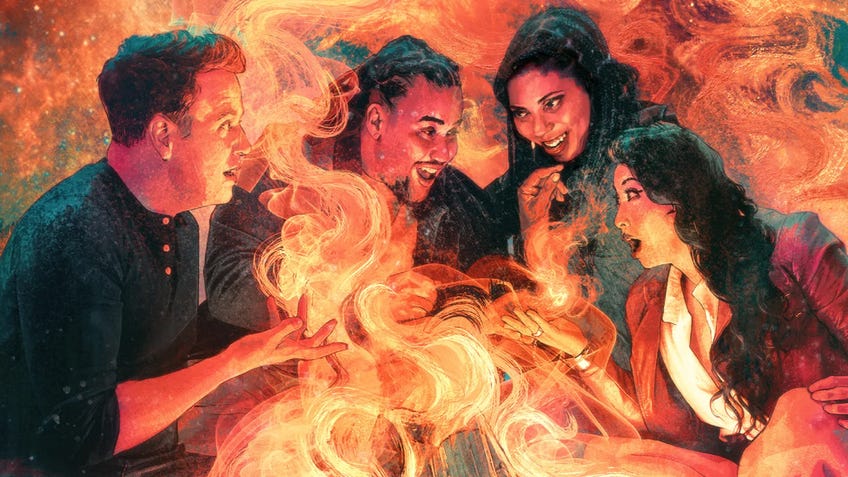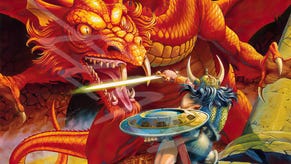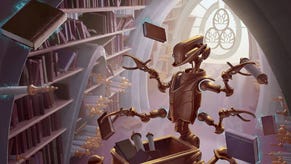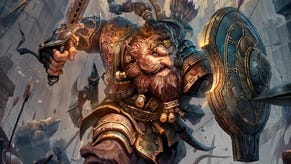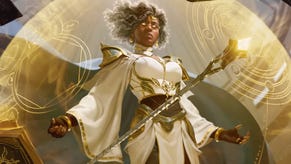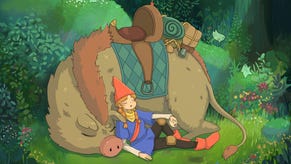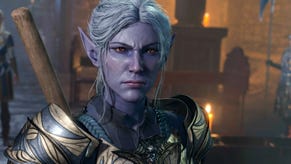Worlds Beyond Number is the slow-burn D&D actual play I didn't know I needed
Sometimes, slower is better.
How fast should a party of Dungeons & Dragons characters level up? It’s a question succinctly summarised by the Dungeon Master’s Guide, which advises you take only one or two sessions for the first couple of levels, and two to three sessions per level after that. For The Wizard, The Witch, and The Wild One, though, you’re waiting a full 14 episodes for the characters to reach level two.
At first glance, that seems deathly slow for a D&D campaign - so many episodes without the dopamine boost of a new level, new features and story progression that comes with it. Players are often motivated by the grind, with each monster slain reducing the amount of experience points needed before the next level and any plot momentum pulling them closer to the heroic status that awaits them at higher tiers. Why languish as rat-catchers when you could rush towards world-bending abilities that defy sense?
But for the debut actual play podcast from Worlds Beyond Number, formed by a host of Dimension 20 alumni such as Brennan Lee Mulligan, Erika Ishii, Lou Wilson and Aabria Iyengar, this slowness is a crucial part of the appeal. It’s a D&D campaign that feels half Critical Role, half radio drama, enjoying the machinations of its original fantasy world like children watching clouds scroll by above them, occasionally interrupted by a storm.
The Wizard, The Witch, and The Wild One has just celebrated its first anniversary, and is pretty unique in the actual play world for taking most of that first year (eight months) for its characters to level up for the first time. Many actual play campaigns these days don’t bother with the ‘tutorial’ stage of level one, which in D&D is largely meant to let beginners get to grips with their class’ most basic mechanics in low-stakes situations; in Critical Role, campaigns start at level two to three, when character abilities are developed enough to make more of an impact on the world.
It’s a D&D campaign that feels half Critical Role, half radio drama, enjoying the machinations of its original fantasy world.
For The Wizard, The Witch, and The Wild One, level one is just as momentous as level 10 would be in another campaign - seeing its characters travel the world, fight monsters and mages, and even grapple with godlike entities that can tear down cities with their rage.
At the same time, it feels removed from the usual pressures of levelling-up as fast as you can to save the world in the nick of time. The minutiae of character development is as important - if not more important - than how many spell slots you have, and the ability to defuse or sidestep situations, to find alternative ways forward when you know your strength isn’t enough, is crucial. When you don’t have the strength to defeat all-powerful enemies, you have to be smart, and careful, and take your bloody time.
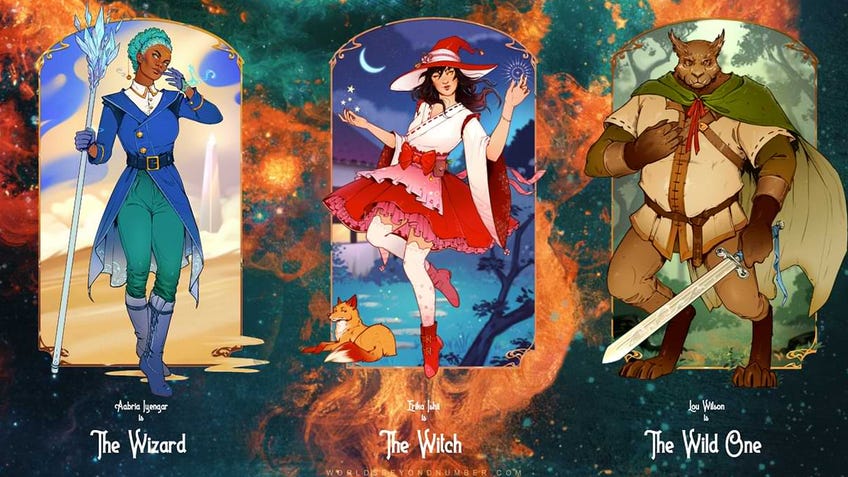
It reminds me a lot of the works of Tolkein, in which the realm is ultimately saved by halflings with little more than a little courage, while war between powerful sorcerers wages around them. There’s a huge focus on the small, mundane actions that happen in a fantasy world, with everyday people caught in the middle of insurmountable geopolitical tensions. Sprinting for a doorway becomes a full half-hour of dice rolls and description of action around you; a touch on an arm becomes a massive realisation of a character’s burgeoning power. Life is in the little things.
For The Wizard, The Witch, and The Wild One, level one is just as momentous as level 10 would be in another campaign.
The cast will spend an entire session (admittedly, only two hours at a time) looking for a suitable shield, with the bulk of the time passed with study of the world’s surrounding lore - where do enchanted shields come from? Who makes them? What for? What material does it use? What part of the city deals with that kind of manufacture, and what class divides does it entail? And, ultimately, how do these small interactions continue to shape our characters, moment by moment?
These are the questions that make listening to The Wizard, The Witch, and The Wild One so compelling. As an original fantasy setting by Mulligan, with the space and room to flesh out the life of the world at its own pace, listeners are able to luxuriate in the details, taking in the nitty gritty of how a magical society actually works. In the usual trough of standard D&D settings like the Forgotten Realms or Critical Role’s Exandrian counterpart, the tropes are so familiar that they often need little explanation.
Here, the world functions so distinctly that the slow-panning camera is what enables you to appreciate it, and the players are granted the time to explore their own attitudes and reactions to the events at play. It’s a little more… intellectual, or psychological at times, but masterfully entwines plot and character, internal and external action, almost as if we get a director’s commentary in real time.
I’ve never quite come across a podcast that was so comfortable moving slowly through its own world, making sure we don’t miss the care that goes into every aspect of its workings.
I’ve listened to many hours of actual play podcasts over the years, from the mainstays in Critical Role and Dimension 20 to Dungeons & Daddies or Connie Chang’s Transplanar. But I’ve never quite come across a podcast that was so comfortable moving slowly through its own world, making sure we don’t miss the care that goes into every aspect of its workings. With one two-hour episode dropped once a fortnight, and almost a year between levels, it’s a fiercely anti-binge attitude that requires slow, methodical attention, like watching a novel being written by hand.
